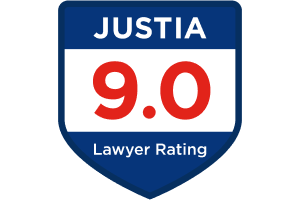- Free Strategy Session: (847) 906-3460 Tap Here to Call Us
What Laws Govern the Securities Industry?

We aggressively protect our client’s rights, whether they’re businesses, investors, financial professionals, or whistleblowers. The tools of our trade are federal and state laws that regulate the securities industry and protect those who may be abused by it. Other laws or legal doctrines may also apply to participants in the securities industry. They include state common law doctrines of negligence and fraud, state statutes prohibiting elder financial exploitation, and unfair trade practices.
In general, the federal system of regulation of investments is a disclosure system. The U.S. Securities & Exchange Commission (SEC) does not verify that securities offered to investors are valid, much less good investments. Most states and territories also have their own securities laws and commissioners who seek to ensure that securities offered by or to its residents comply with state/territorial and federal laws.
The SEC and most state/territorial securities regulators seek to ensure that investors are provided with certain information that they can assess to determine whether to invest. They also seek to ensure that participants in the securities industry – like brokerage firms, individual brokers, investment advisory firms, and individual investment advisers – are complying with the law.
There are a host of “self-regulatory organizations” like the Financial Industry Regulatory Authority (FINRA) that regulate certain participants in the securities industry. Those “SROs” have their own sets of rules with which regulated entities and individuals must comply. Many of these laws and rules are virtually identical, but they give the government the ability to bring multiple, distinct claims based on the same conduct and also to seek additional relief like penalties. FINRA also operates a dispute resolution forum that brokerage firms and their clients are required to use to resolve claims and disputes.
Investment advisers are not regulated by FINRA or subject to any SRO rules, but they are required to fulfill common law fiduciary duties to their customers and comply with the Investment Adviser Act of 1940. The fiduciary duties of investment advisers historically were determined by courts of law, derived in part from cases filed in those courts. In recent years, however, investment advisory firms have often required that their customers consent to mandatory arbitration. This is usually buried in the fine print of account opening documents.
Those arbitrations sometimes are with FINRA but often are with other more costly arbitration forums like the American Arbitration Association (AAA) and JAMS, another private arbitration provider. The filing fees and arbitrator costs in AAA and JAMS can easily reach tens of thousands of dollars. When investor losses are in the tens or even low hundreds of thousands of dollars, that can mean the investor has no practical way to vindicate their rights.
Securities Act of 1933
The Securities Act of 1933 requires that issuers and others who are involved in the offer and sale of securities provide certain information when those securities are publicly offered and provide truthful information whether the offering is public or not. The SEC views this statute as having two objectives:
- Requiring that investors get specific financial and business information about securities offered for public sale, and
- Prohibiting and preventing fraud, misrepresentation, and deceit in connection with the sale of securities, whether those securities are publicly offered or not
For securities (like stocks and bonds) offered to the public, this law mandates that the offeror file a registration statement with the SEC. That registration statement is reviewed by the SEC, but that does not provide investors with assurance that the information is accurate or complete.
A company offering securities to the public is required to disclose certain important facts in a registration form, like:
- The company’s business and properties
- A description of the security to be sold (like common stock, preferred stock, bond)
- Information on the company’s management
- Financial statements that are certified by independent accountants
Registration statements and prospectuses are made available to the public shortly after filing via the SEC’s Electronic Data Gathering, Analysis, and Retrieval (EDGAR) system. While the SEC Staff examines registration statements, the SEC does not verify the accuracy of the information that is disclosed. Investors must do that themselves.
Companies and others involved in offerings may be charged by the SEC with failing to correct previously disclosed information in registration statements that is no longer accurate. They also may be charged with failing to timely disclose material information they learn to investors.
This information is made available to permit investors to make informed decisions about whether to buy a company’s securities. Investors purchasing securities and later suffering losses have recovery rights if they prove essential disclosures were incomplete or inaccurate.
There are many securities offerings that are not required to be registered with the SEC. Those offerings are made under certain exemptions included in the law. Those exemptions include private offerings to a limited number of institutions or people and intrastate offerings.
Companies making offerings under the exemptions are not required to file a public registration statement and are not required to disclose the specific information that a public offeror would have to disclose. The law still prohibits those offerings from being fraudulent, containing misrepresentations, or failing to include material information.
Securities Exchange Act of 1934
Congress created the SEC with this law which empowers it with broad authority over the securities industry. The agency can regulate, register, and oversee transfer agents, brokerage firms, clearing agencies, and SROs like FINRA. The SEC used its authority under this law to enact its antifraud rule, called Rule 10b-5.
This law prohibits some types of market conduct and equips the SEC with disciplinary powers over regulated entities and people connected to them. Under this law, the SEC can also require companies with publicly traded securities to report information periodically (quarterly, annually). The law permits the SEC and individuals to file legal actions.
This law prohibits fraud in connection with the offer, purchase, or sale of securities. The SEC often brings charges under the antifraud provisions of this act as well as the provisions prohibiting the sale of unregistered securities (that are not subject to a valid exemption) and to persons or entities acting as unregistered broker-dealers. SEC charges of unlawful insider trading are generally brought under the antifraud provisions of the act.
The federal securities laws are periodically revised or amended by Act of Congress. They include the Sarbanes-Oxley Act of 2002, Dodd-Frank Wall Street Reform and Consumer Protection Act of 2010, and the Jump Start Our Business Startups (JOBS) Act of 2012.
Illinois Securities Law of 1953
Federal laws get more attention than state statutes regulating securities, and state agencies don’t have the resources of the SEC and the Department of Justice. Still, they may be helpful in your situation because state law may cover securities that federal laws do not. For example, Illinois has a state statute that is enforced by the Illinois Securities Department of the Secretary of State’s office.
The Illinois Securities Law of 1953 prohibits:
- Selling unregistered securities
- Making false or misleading material statements in reports filed under the law
- Obtaining money or property by selling securities based on an untrue statement
- Circulating a prospectus while knowing it contains material, false statements
Other states have similar laws, but each has its own idiosyncrasies. Under Illinois law, a securities purchaser who suffers harm because the law was violated may seek a rescission of the sale. If successful, the seller must take back the security, refund the purchase price, and pay interest. Part of the process involves giving notice to responsible parties within six months of learning of the legal violation.
FINRA Rules
FINRA has general and specific conduct rules. Brokerage firms and their registered representatives, as well as other individuals associated with brokerage firms, are regulated by FINRA. It has its own enforcement staff to investigate potential violations of its rules and of federal securities laws and regulations.
Generally, those investigations are brought under FINRA Rule 8210, which permits FINRA to compel those it regulates to produce documents, answer questions, and appear to provide on-the-record testimony. FINRA has general and specific conduct rules.
- Rule 2010 is a general conduct rule, which requires that a member (brokerage firm) observe high standards of commercial honor and just and equitable principles of trade
- Rule 2111 is a more specific conduct rule, which requires that any recommendation of a transaction or investment strategy involving securities be “suitable” for the investor
FINRA issues notices to clarify what its rules mean.
Schedule a Free Consultation With Bragança Law Today
Whether you’re involved in an SEC/FINRA investigation, an investor seeking recovery of losses, or a whistleblower punished for doing the right thing, Lisa Bragança at Bragança Law can help. Your case’s outcome could affect you and your family for the rest of your life, which is why Lisa works tirelessly to get the best possible results for her clients.
Lisa Bragança works with clients nationwide, as well as those living in Chicago and its suburbs. Her office is about 26 miles from the Chicago Midway International Airport (MDW) and approximately 13 miles from the O’Hare International Airport (ORD). To schedule your free consultation, call Bragança Law at (847) 906-3460 or fill out our website’s contact form.






















